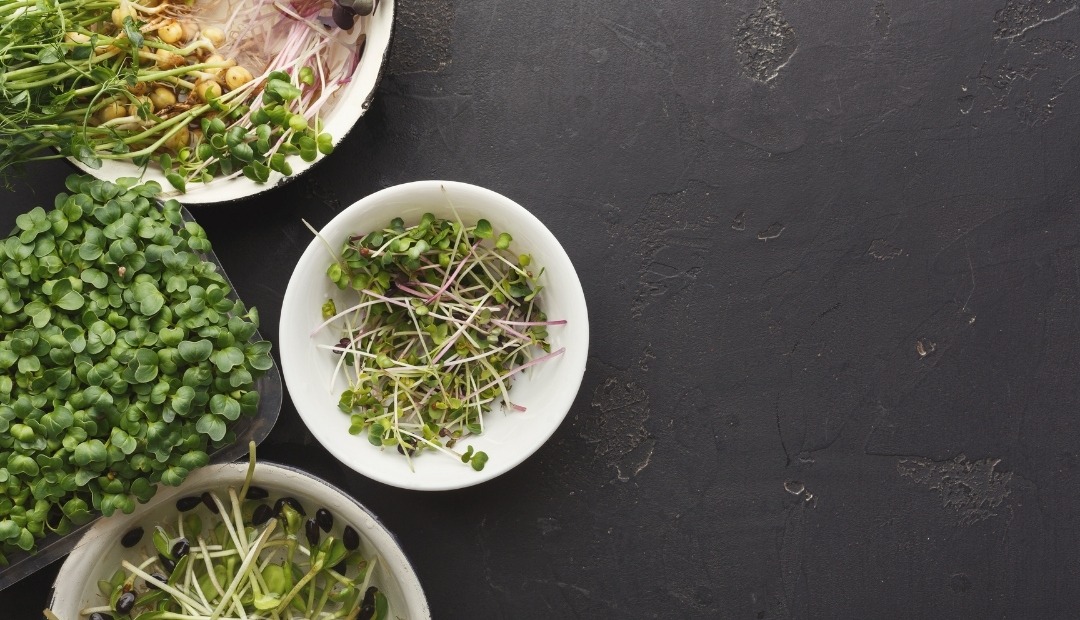If you’ve ever gone to a high-end restaurant, you might know for a fact that you can never come out of it feeling full. You might have also seen sprout-like garnishes as common staples in its dishes.
Want to enjoy a fancy yet budget-friendly meal and incorporate more nutrition into your daily diet? Consider growing microgreens in your apartment.
Microgreens serve as great additions to a variety of meals. Compared to sprouts, these baby greens are longer, come with true leaves, and can generally be eaten raw. Plus, they’re a whole lot tastier and easier to grow.
But what exactly are the benefits of microgreens? And how do you start incorporating them into your daily meals?
Benefits of Microgreens
Aromatic and tasty, microgreens add flavor-packed nutrients to your everyday meals. Besides that, they offer various benefits to your health and overall lifestyle.
Rich in Vitamins and Minerals
The nutritional contents of microgreens differ from one variety to another. But one thing’s for sure: most of them are packed with key nutrients.
Some vitamins that microgreens possess are vitamins C and E. They’re also rich in minerals, such as copper, iron, and zinc.
Great Source of Antioxidants
Ever been told to “eat your veggies” while you were just a kid? It might sound trite, but vegetables are some of the best immune-boosting fuels out there.
Vegetables, particularly microgreens, come with high amounts of beneficial compounds that lower the risk of different diseases–from diabetes and heart conditions to certain types of cancers.
Easy to Grow
Microgreens only take a few weeks to grow. And if that isn’t enough, you can easily grow them in kits and plant them on your window sill or balcony, making them perfect for apartments.
You don’t have to be an expert gardener to grow microgreens. If you have a container and garden soil, you’re all set for your microgreen growing journey.
Once you’ve started growing your own microgreen garden, you can enjoy a sustainable and budget-friendly source of daily nutrition.
Main Types of Microgreens
Ready to start growing microgreens? If you are, you might want to understand the most popular kinds of microgreens.
There are countless types of microgreen seeds out there, but they can all be categorized according to their families. These will provide you with a glimpse of their general taste, nutritional values, and preferred growing conditions.
Amaranthaceae
- Includes: Amaranth, quinoa, Swiss chard, beet, and spinach
- Flavor: Earthy and slightly sweet
Amaryllidaceae
- Includes: Garlic, chive, onion, and leek
- Flavor: Strong, pungent, and slightly sweet
Apiaceae
- Includes: Celery, carrot, dill, and fennel
- Flavor: Mild and earthy. Some are zesty or sweet.
Asteraceae
- Includes: Lettuce, radicchio, endive, and chicory
- Flavor: Rich and slightly bitter
Brassicaceae
- Includes: Broccoli, cabbage, cauliflower, radish, and arugula
- Flavor: Slightly spicy and nutty
Cucurbitaceae
- Includes: Cucumber, squash, and melon
- Flavor: Slightly bitter and sweet
How to Enjoy Microgreens
Microgreens vary in flavor, aroma, and texture, so you might want to do a taste test before adding them to your dishes. But in general, you can enjoy microgreens through the following:
- Creating microgreen salads
- Blending them for smoothies or juices
- Topping off pasta, soup, and pizza
- Adding an herby flavor to stir-frys
- Garnishing drinks and desserts
- Enjoying them straight as snacks
No matter how you choose to include microgreens in your daily meals, keep in mind that they can be enjoyed raw. So instead of buying processed ones from the store, grow them at home to enjoy their full range of benefits–the fresher, healthier, and cheaper way.
The Briq on 4th Street Apartments in Bentonville, AR


